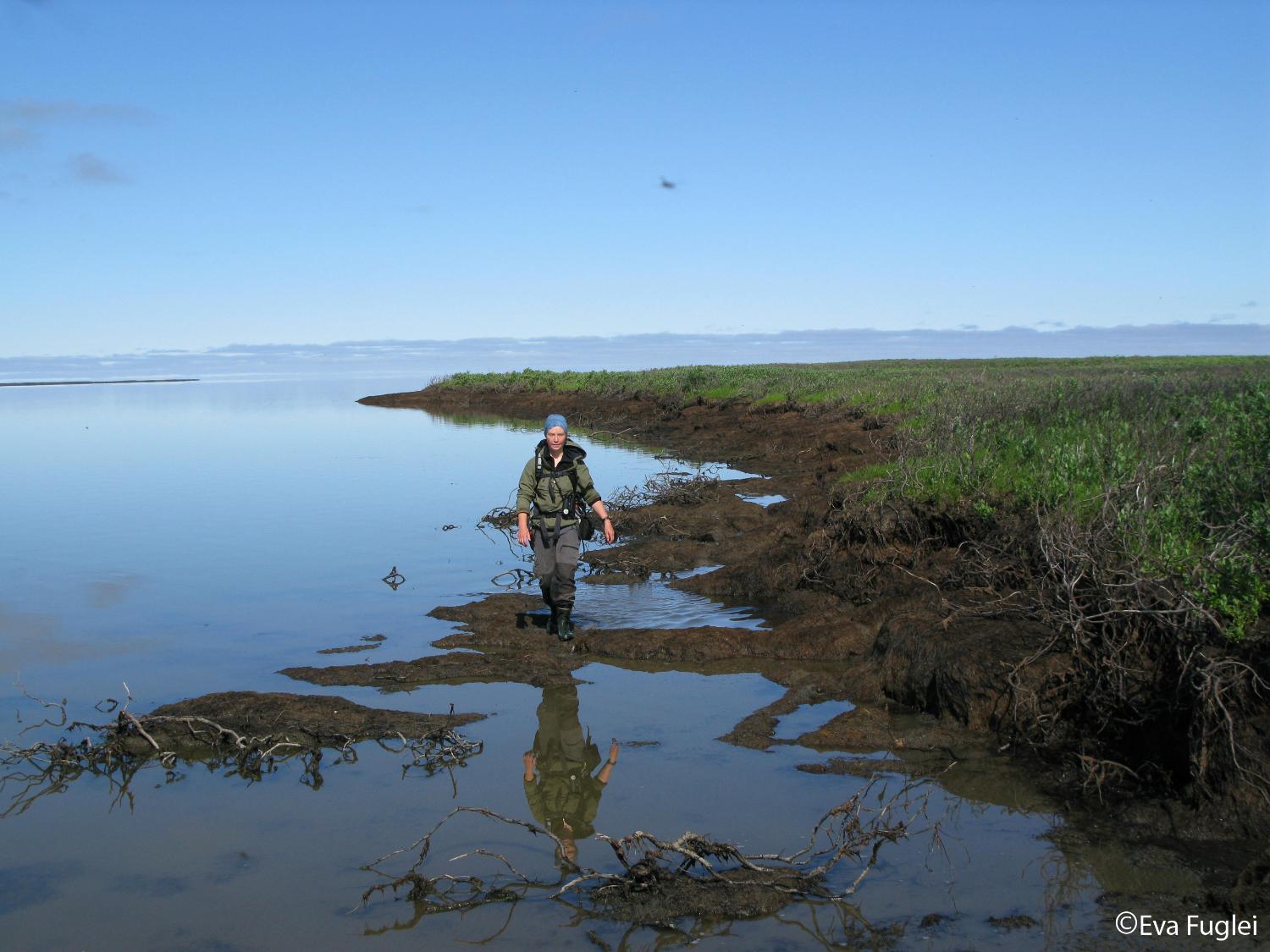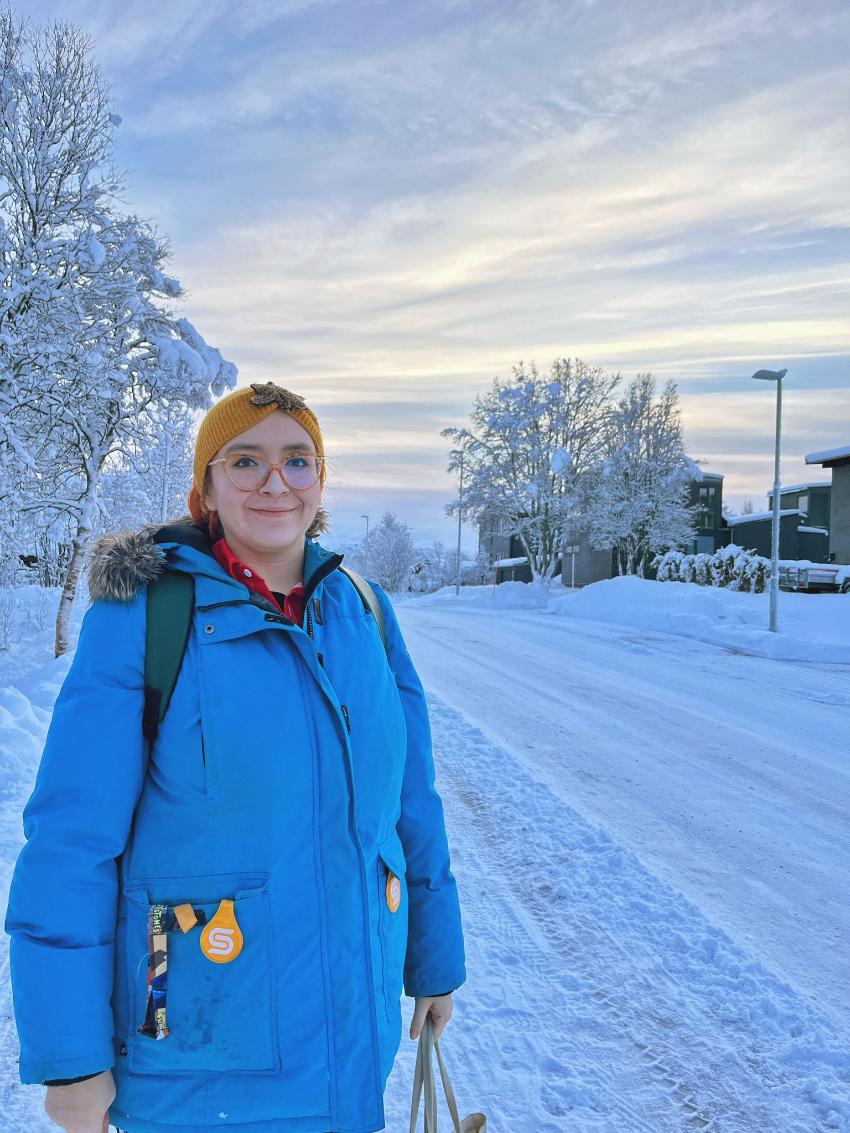Study Biology at UiT The Arctic University of Norway.
Are you curious about the natural world, from genes to ecosystems? Do you want to conduct research that matters both scientifically and socially?
Here’s why UiT is the perfect place for your master’s degree:
- Unique Location: Study north of the Arctic Circle, surrounded by stunning landscapes and ecosystems.
- Hands-On Learning: Access Arctic marine and terrestrial habitats, which serve as our "living laboratories."
- Modern Facilities: Learn and research in one of Norway’s most advanced campuses, with cutting-edge tools for basic and applied science.
- Supportive Community: Be part of an academic environment that encourages exploration and discovery.
Start your Arctic biology journey today!
This study programme requires compulsory attendance to the introductory meeting.- bachelor’s degree (180 ECTS) or an equivalent degree following a programme of study of minimum 3 years.
- a minimum of 80 ECTS in the bachelor's degree must include a specialization in biological topics [i.e., biodiversity (zoology/botany), ecology, cell- and molecular biology, microbiology, physiology (animal/plant), biochemistry and bioinformatics].
- a minimum grade average comparable to a Norwegian C (3,0) in the ECTS scale. The average grade is calcualted from the entire bachelore´s degree.
- proof of English language proficiency. (Applicants with education from non-Nordic countries. You will find more information of English language requirements here.)
One of the specializations in the Biology - Master’s program have additional qualification requirements.
- Applicats to the Molecular Environmental Biology specializations must have completed courses in basic and practical molecular biology corresponding to a minimum of 10 ECTS (BIO-2018 or equivalent) or can document hands-on molecular lab experience through a bachelor thesis
- Applicants with a degree in Agricultural, Fisheries and Aquaculture studies, Biomedical laboratory sciences ("Bioingeniør"), or Bachelor of Pharmacy, Medicine or Dentistry do not fulfil the admission requirements.
Admission capacity:
50 places
How to apply for admission to UiT? Read more here
Non-EU students must be prepared to pay tuition fees, more information here
Non-EU applicants:
- 2087 Arctic animal biology
- 2077 Freshwater ecology
- 2078 Arctic marine ecology
- 2079 Molecular environmental biology
- 2080 Northern populations and ecosystem
- 2081 Arctic marine ecotoxicology
- 2082 Ecology and sustainability
EU/EEA + Swiss applicants:
- 7117 Arctic animal biology
- 7111 Freshwater ecology
- 7112 Arctic marine ecology
- 7113 Molecular environmental biology
- 7114 Northern populations and ecosystems
- 7115 Arctic marine ecotoxicology
- 7116 Ecology and sustainability
Applicants from Norway or Nordic countries:
- 6027 Arctic animal biology
- 6021 Freshwater ecology
- 6022 Arctic marine ecology
- 6023 Molecular environmental biology
- 6024 Northern populations and ecosystem
- 6025 Arctic marine ecotoxicology
- 6026 Ecology and sustainability
Program description
The Biology - Master´s program provides opportunities to explore an array of pressing questions within modern biology and emphasize some of society`s challenges regarding management of natural resources and biodiversity. Each of the specializations is strongly linked to ongoing research in our research groups, providing the relevant theoretical background, training in state-of-the-art laboratory and field methods, innovative and critical thinking for problem solving, thesis and publication writing as well as training of presentation and knowledge transfer proficiency. Thus, students will be given the opportunity, and is expected, to actively participate as part of the research collegiate in the research group, the department and with relevant external institutions depending on master thesis and master specialization activity.
It is possible to conduct part of the master project in collaboration with external organizations such as Fram Centre Institutes (e.g., Norwegian Polar Institute, Institute of Marine Research, Norwegian Institute for Nature Research (NINA), Norwegian Institute of Bioeconomy Research (NIBIO), Akvaplan-niva, Nofima) and the University centre in Svalbard (UNIS), or other organizations in Norway and abroad. In this case, an internal supervisor at our department of Arctic and Marine Biology, in addition to the external supervisor at the host Institution will be affiliated with the project.
Learning outcomes
The Master’s program in Biology at UiT provides you with advanced knowledge of biological processes and ecosystems in Arctic and sub-Arctic environments. You will gain specialized expertise in your chosen field of study and learn to critically analyze scientific literature and current research trends.
Throughout the program, you will develop the skills to plan and carry out independent research projects, including formulating hypotheses, collecting and analyzing data, and applying ethical research practices. You will also learn to use modern research methods, tools, and technologies, both in the field and in the laboratory, while working independently and collaboratively.
By the end of the program, you will be able to communicate scientific findings effectively to diverse audiences, contribute to innovation and sustainable solutions, and apply your knowledge and skills to carry out advanced assignments and projects.
Job prospectives
The Master’s degree in Biology will allow you to qualify for different career paths and prepare you to step into a professional role or to apply for a PhD.
A Master of Science degree in Biology will prepare you for a wide range of jobs, in both public and private sectors, including research, resource and nature management, administration, consulting and the teaching profession.
The master thesis can play an important role to establish your domain of expertise and to showcase acquired technical and soft skills. Also, it can be very important in building scientific and professional network, that will be a support in your future job search.
Degree Name
Master`s of Science in Biology.Access to further studies
On successful completion of the degree programme, students may be qualified for admission to a PhD-programme in Biology at UiT or elsewhere.
Related professions
Study plan
Language of instruction
Language of instruction is English, and all of the syllabus material is in English. Examination questions are given in English but may be answered either in English or a Scandinavian language.
The Master`s thesis must be written in English.
Teaching and assessment
The program is a fulltime study at UiT The Arctic University of Norway´s campus in Tromsø, Norway at 69 degrees north.
Different teaching methods are employed, including lectures, seminars, laboratory work, computer lab and field courses. Course examinations may be oral or written, assessments of project work/lab reports/field reports, often in combination. Supervision of the project work that leads to the writing of the master’s thesis will be given by faculty staff, sometimes in collaboration with an external supervisor.
Students can undertake periods of studying at The University Centre at Svalbard (UNIS), especially during their third and fourth semester.
International exchange during an entire semester is not possible in the first year of studies due to obligatory courses in all discipline.
Stays abroad can take place as part of a master project in the third and fourth semester. Please consult the program study advisor for more information.
Destinations for studies abroad
Saga Svavarsdottir
SeniorrådgiverVil du vite hvordan det er å være student ved UiT? Følg @uitstudent på Instagram eller TikTok, hvor studenter deler fra livet på universitetet. Her får du praktiske tips om studier og studentliv, nyttig informasjon om campus og muligheten til å stille spørsmål om alt du lurer på.
For mer informasjon om studietilbud, forskning og muligheter direkte fra UiT, kan du følge @uitnorgesarktiske på Instagram eller TikTok. Her finner du offisielle oppdateringer og innsikt i hva universitetet har å tilby.





